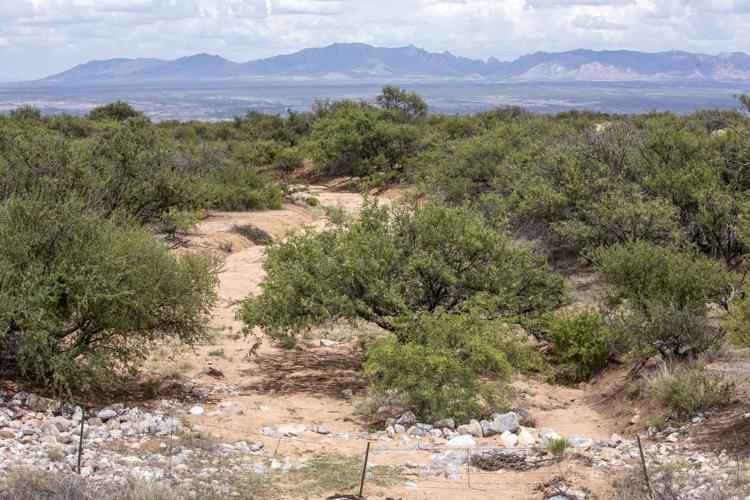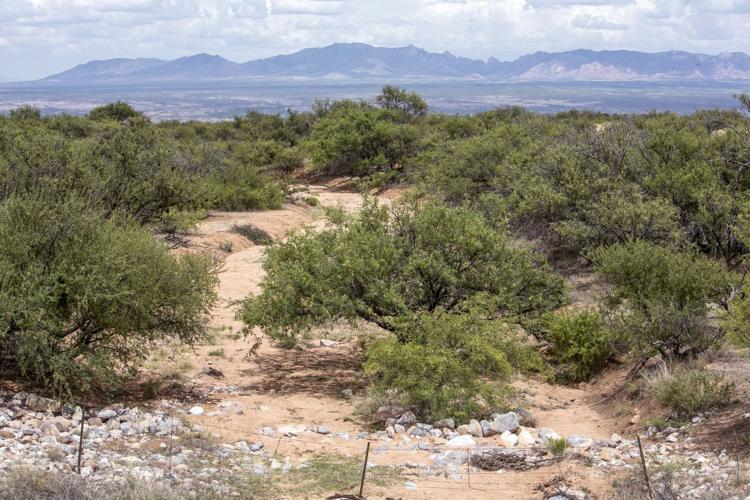Benson city leaders say a bill moving quickly through the Legislature gives too much power to a landowner seeking tax-exempt bond financing for a proposed 28,000-home master-planned community.
At least three Benson City Council members say HB 2568 would give Phoenix developer El Dorado Holdings Inc. decisive control over an improvement district to help fund public infrastructure in the Villages at Vigneto development. The project could bring 70,000 more people to the tiny town in Cochise County.
The bill passed the House of Representatives on Feb. 25 by a vote of 60-0 and is now in a Senate committee. It requires city and county governments to accept a landowner’s petition for what’s known as a “community facilities district” — a mechanism to fund public infrastructure for a development by selling tax-exempt bonds — if the landowner has more than 600 acres.
It also gives more leverage to the landowner in deciding who will be appointed to the district’s board of directors.
“It takes power away from the local government and gives it to developers,” Councilman Chris Moncada said.
The legislation, which amends a 1988 statute allowing for community facilities districts, comes as the Benson City Council wrangles with El Dorado over details of Vigneto’s proposed community facilities district, including the makeup of its board and staff. The parties haven’t yet finalized the agreement to form the district for Vigneto, a high-end community that would cover 12,000 acres southeast of Tucson.
Last summer, Councilman Jeff Cook said he feared El Dorado wanted to stack the district’s board and staff with its allies. Under the new legislation, those fears seem more likely to come to fruition, he said. He believes El Dorado has been pushing the bill.
“We’ve been dealing in good faith with them and yet they do this, and that’s shows me they’re dealing in bad faith,” he said.
Mike Reinbold, a partner with El Dorado, said HB 2568 was not driven by the developer’s efforts to get an improvement district .
“The process to amend this legislation began several years ago and is not based on Villages at Vigneto,” Reinbold said in an email to the Star. His assistant said he did not have time for an interview last week.
“It started with Tucson and Phoenix property owners,” the email said. “It’s written to help property owners.”
BENEFITS TO THE DISTRICT
Moncada sees the benefits of forming a community facilities district for Vigneto: The extra funding allows developers to pursue high-quality, instead of “cookie-cutter,” home designs and to add more amenities, which benefits the local population and tax base, he said. Preliminary plans for Vigneto include amenities like recreation centers, community parks and an extensive trail system.
But the district’s board has a lot of responsibility, such as deciding how to allocate bond funding, how much in bonds should be sold and how much homeowners in the development will be taxed to pay back the bonds. Moncada believes elected officials need to have a say in those decisions.
The stakes are high: The bonds taken out for the community facilities district will likely be valued in the billions, Moncada said. If the district defaulted on the bonds, the city isn’t liable for paying it back, but Benson would struggle to secure bond funding for future developments with that stain on its record, he said.
SPECIAL DISTRICTS
A community facilities district — a political subdivision that is separate from the local government — can sell tax-exempt bonds to fund infrastructure, like parks, water drainage and roads.
The developer fronts the money for the infrastructure, and once the project is underway, it begins selling bonds to get reimbursed for those expenses. The bonds are paid off over time by homebuyers or businesses, as individual lots are sold. Typically, the homebuyers agree to pay an additional property tax to help pay off the bonds.
Community facilities districts are underutilized in Arizona, and that’s a turn-off to potential investors, said Priscilla Storm, vice president of Tucson developer Diamond Ventures, which supports the bill.
Mandating approval of the largest districts “can be a strong economic development and job-creation tool and should make Arizona more competitive and effective in attracting investment to the state,” she said.
Currently, the districts can be run by either a municipal board comprising the town council and mayor, or a private board appointed by the local government.
The bill eliminates the option for a municipal board. Instead, the district’s five-person board would be a public-private hybrid, including two people appointed by the municipality, two appointed by the landowner and another chosen by the municipality from a list of four options provided by the landowner.
Cook said that arrangement gives the developers’ preferred board members a 3-2 majority on any vote.
“They want the board under their complete control,” Cook said. “The two (members appointed by the government) become nothing more than spectators.”
‘NO OVERSIGHT’
El Dorado Holdings and Diamond Ventures are members of the Landowners for Arizona’s Economic Development Coalition, which supports HB 2568.
Lobbyist Susie Stevens said during a House hearing that the coalition’s 11 member companies represent more than 200,000 acres in Arizona.
In his email, Reinbold said HB 2568 brings Arizona’s statutes on improvement districts closer in line with the rest of the nation.
Moncada disagrees. While other states allow for private or hybrid boards and can mandate local approval of those districts, he said those states often have state-level oversight of the districts, which isn’t the case in Arizona.
“There will be no oversight,” he said. “You’re talking about billions of dollars in bonds with nobody watching.”
Storm said the bill’s supporters plan to add an amendment stipulating that the landowners’ board appointments will have no financial stake in the related development and must have expertise in law, finance, engineering and construction.
“The long-term success and sustainability of these master plans is achieved through ongoing public-private collaboration,” Storm said in an email. “Nothing in HB 2568 is intended to change that.”
Benson City Councilman Joe Konrad said he expects Benson can finalize its community facilities district before the bill could become law. But if not, he shares his colleagues’ worries about the city possibly being cut out of board decisions.
“My job as a councilperson is to represent and ultimately protect the taxpayers in Benson,” he said. “We’d like to have a little more input on things.”
Councilman Patrick Boyle did not respond to a request for comment.
CAMPAIGN DONATIONS
Benson City Councilman David Lambert said the fact that Arizona House Speaker David Gowan, a representative from Cochise County, is sponsoring the bill seems “too convenient.” He thinks Vigneto’s developer is a driver of the legislation.
“If it was put together by anybody else in the state, I’d say just a coincidence,” he said. “But the fact that Mr. Gowan is the one pushing this through, it makes it almost look like somebody approached him and is trying to get their way with this thing.”
Gowan did not respond to requests for an interview.
Gowan, who announced in October his candidacy for U.S. Congressional District 1, has received financial support from developers and homebuilders in Arizona.
He received $9,100 in donations to his campaign from affiliates of Diamond Ventures, including a combined $5,400 from chairman Don Diamond and his wife, Joan, Federal Election Commission records show.
Storm, who contributed $500 to Gowan’s campaign, said it isn’t surprising that the developer wants a familiar elected official bringing his knowledge of Southern Arizona to the national stage.
“CD1 is a really large district,” she said. “Having someone (representing it) that understands Southern Arizona and understands the Tucson metro region would be beneficial.”
TAX-EXEMPT BONDS
New proposed IRS rules could potentially cause trouble if Arizona community facilities districts create boards perceived as controlled by developers, instead of the local government.
The proposed rule requires that political subdivisions, like a community facilities district, be “government controlled” in order to sell bonds whose returns are tax-exempt.
If a majority of the district board appointments are influenced by a developer, that could conflict with the rule, Moncada said.
“If IRS decides these are no longer tax-exempt, who pays taxes on those?” Moncada said.
Dee Wisor, bond attorney with Butler Snow in Denver, said the hybrid boards created under HB 2568 could be a problem for the IRS. But there’s more to determining whether a district is “government controlled” than the board composition; the IRS would also consider the government’s decision-making authority in other aspects of the district.
Regardless, Wisor said, Benson probably wouldn’t be on the hook if the IRS revoked the tax-exempt status of the Vigneto’s bonds.
“They’d go after the district,” he said. “It would be a highly unusual circumstance where they’d go back to the approving municipality.”
Bond attorneys like Wisor are working overtime to reconfigure special taxing districts to get in compliance with the proposed rule, Wisor said.
The IRS has “potentially adversely affected the tax-exempt status of billions in outstanding bonds with the regulations they’ve proposed,” he said.





